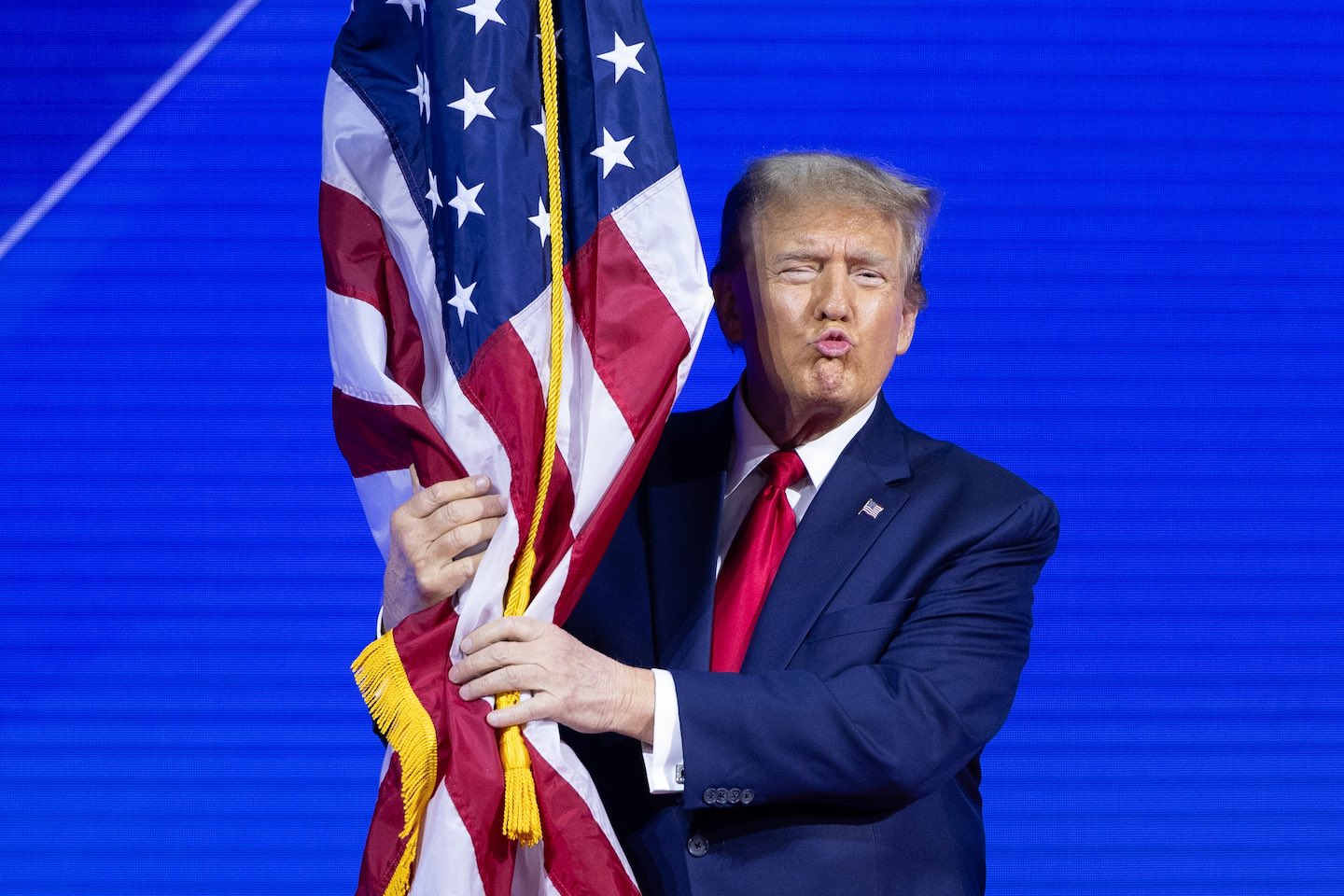
Former President Donald Trump has announced plans to sign an executive order that would establish legal consequences for individuals who burn the American flag, reigniting a long-standing debate over free speech, patriotism, and constitutional rights in the United States. The move, which Trump has teased in the past, is expected to intensify legal scrutiny given the Supreme Court’s established precedent that flag burning is protected speech under the First Amendment.
The executive order, as described by Trump’s team, would create federal penalties for desecrating the American flag, including potential fines and jail time. Supporters argue that the measure is necessary to defend the honor of the national symbol and deter acts that they see as deeply disrespectful to the country, its history, and its service members. “The flag is sacred. It represents our freedom, our sacrifices, and our greatness,” Trump said during a press briefing, calling the act of burning it “a disgrace that should never be tolerated.”
Opponents, however, have quickly raised alarms about the constitutionality of the order. The Supreme Court has repeatedly ruled that flag burning, however offensive it may be to some, falls under the category of symbolic speech protected by the First Amendment. The landmark 1989 case Texas v. Johnson struck down state laws that banned flag desecration, and a subsequent 1990 ruling reaffirmed that position when Congress attempted to legislate against it. Legal experts expect that if Trump’s order is enacted, it will face immediate challenges in federal courts.
Civil liberties organizations, including the American Civil Liberties Union, issued statements criticizing the move as an attack on free expression. “The government cannot punish people simply because their speech is unpopular or offensive,” said one ACLU attorney, noting that such an order would almost certainly be struck down in the courts.
The issue of flag burning has long been politically divisive. While polls have consistently shown that many Americans personally oppose the act, opinions differ sharply on whether the government should criminalize it. For conservatives and veterans’ groups, flag desecration often represents a fundamental insult to national pride. For progressives and civil libertarians, attempts to criminalize it represent government overreach and a dangerous erosion of free speech rights.
Trump has frequently leaned into this debate as a way of rallying his political base. During his presidency, he often suggested that those who burn the flag should face punishment, even once floating the idea of stripping offenders of their citizenship. Though such proposals were never codified into law, they resonated with his supporters who see the flag as a symbol of unity and sacrifice. His latest move appears aimed at rekindling that sentiment.
The timing of the announcement is also notable. With the political climate as polarized as ever, Trump’s decision to push an issue so tied to symbolism and patriotism seems likely to dominate national conversation in the coming weeks. Critics argue it is a distraction from more pressing policy matters, while supporters frame it as a necessary step in reinforcing American values.
Should the order take effect, enforcement would likely face practical hurdles. Federal prosecutors would have to determine when and how to pursue cases, while courts across the country would immediately be tasked with balancing the order against existing First Amendment protections. Given the Supreme Court’s historical stance, most experts believe the judiciary would ultimately strike down any attempt to criminalize flag burning, setting up yet another high-profile constitutional clash.
For now, Trump’s announcement has once again placed one of America’s most enduring cultural flashpoints in the spotlight. Whether the executive order holds up legally or not, it underscores the ongoing tension between patriotic symbolism and constitutional freedoms—a debate that has shaped American democracy for decades and shows no signs of fading.






